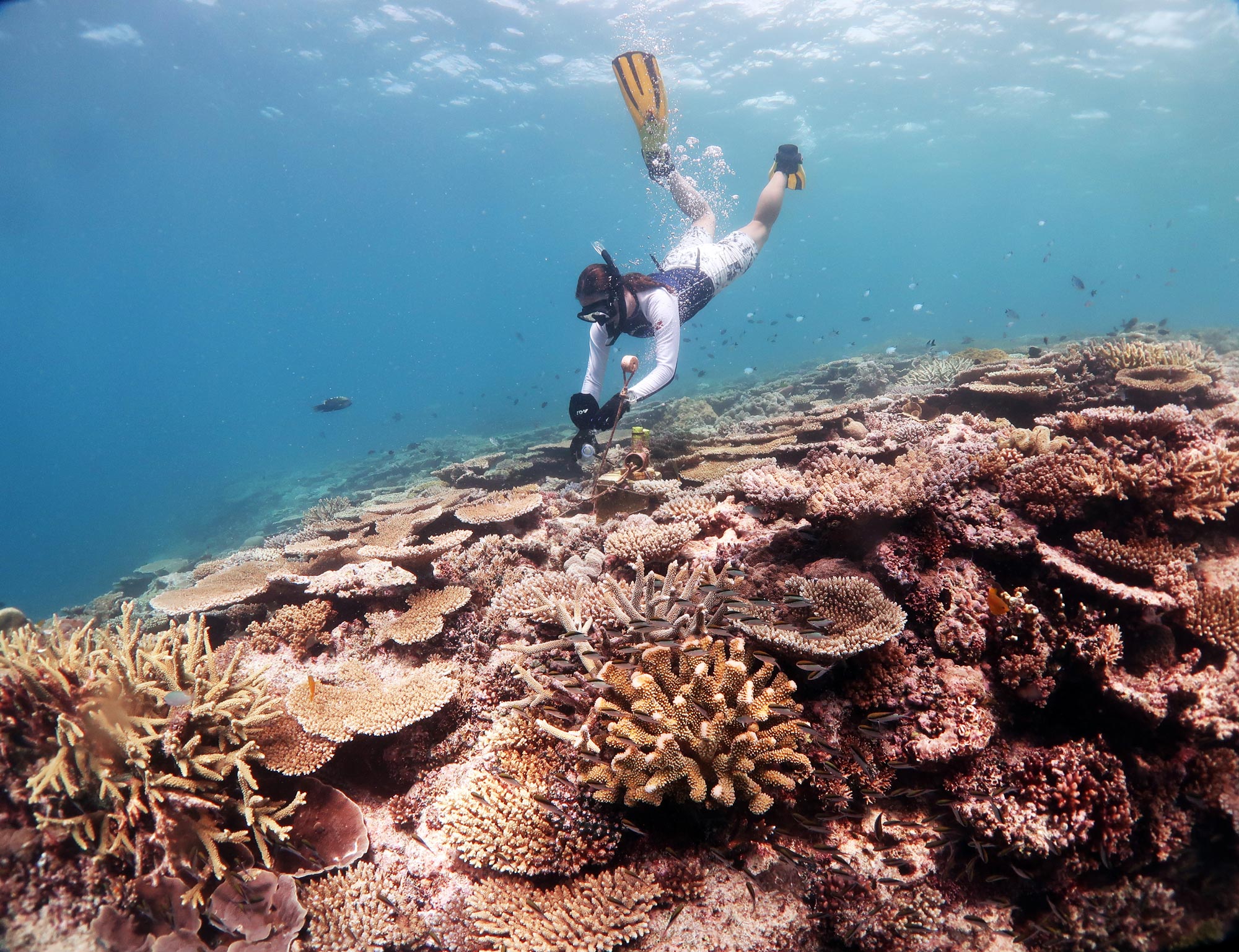Ocean acidification caused by rising CO₂ levels threatens coral because it breaks down the rocky, calcified skeletons that give coral its distinctive structure, according to Katie Barott, Assistant Professor of Biology and senior author on a study published in Proceedings of the Royal Society B. When water CO₂ levels surge, corals can no longer grow or maintain their skeletons. However, coral from certain environments may weather changes in CO₂ levels better than others.
“We found that corals from environments with extreme CO₂ fluctuations were better able to regulate their cellular chemistry when faced with acidification stress,” says Brown (pictured), a member of Barott’s lab and the lead author on the study.
The researchers hope that ultimately they can uncover how coral adapts to environmental stressors like acidification and utilize those adaptations to mitigate damage from climate change. “There are already corals out there that can deal with these types of stressors,” says Barott. “So, we’re trying to figure out what makes those corals special.”




